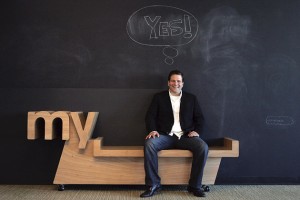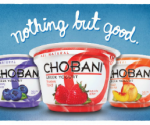Social Networks Past: Pouring One Out for MP3.com
 We’ve just witnessed a Myspace (formerly MySpace) re-launch. The former titan of social networks has rebranded itself, wrapped itself up in some breathtaking new web design and declared music as its main focus. That makes sense for a lot of reasons—from about 2004-2007, Myspace was a great place for underground bands to post music, market themselves and network.
We’ve just witnessed a Myspace (formerly MySpace) re-launch. The former titan of social networks has rebranded itself, wrapped itself up in some breathtaking new web design and declared music as its main focus. That makes sense for a lot of reasons—from about 2004-2007, Myspace was a great place for underground bands to post music, market themselves and network.
It was also a great way for fans to discover new music and connect with their favorite local (and national) bands. It was easy for musicians and casual users to customize their pages. Though it was eventually slain by Facebook, it was still the best option for underground bands well into Emperor Zuckerberg’s reign. Believe it or not, there was a dark period in the internet’s history before Myspace came around when there was a social network for underground bands, even if it wasn’t branded as such. That site was MP3.com.
Myspace before Myspace
The modern incarnation of MP3.com seems like a great website. It has an artist signup, the Smoking Popes are at the top of the page and it all looks very clean. It’s almost nothing like the MP3.com I’m talking about. The MP3.com of that past was messy, loose and somewhat unpredictable. It felt subversive and inviting at the same time. In my teenage years, though, MP3.com was a revolution. It changed everything for me.
By the time I hit high school I’d been using the internet for a few years, and I was also in the worst punk rock band in history. We were based in a small town, so there weren’t exactly too many bands to network with. When I discovered MP3.com it was a revolution. I could look up bands by genre and location. I could listen to their music. I could see when and where they were playing. I could contact them. I could upload my own music and share it with them.
MP3.com circa 2001 wasn’t just a space for me to gawk at other musicians and try to coax out an email response—it was a place where I was a musician. I can’t overstate the impact that had on my teenage mind. I’d used forums, chat rooms and Usenet before. I’d signed guest books. MP3.com, though, was the first time I felt like I belonged to a web community.
Linking, Networking and DIY
MP3.com started long before I ever found it. It began in 1997 as a way to drive traffic to Filez.com, an FTP search site with a user-friendly interface, but it quickly became something more. It became a haven for underground artists and generated some amazing traffic. Wikipedia cites an issue of The Wire that proclaims MP3.com was shut down for an ad they’d already purchased in the National Academy of Recording Arts and Sciences (NARAS) Grammy Magazine. While MP3.com asserted that their site hosted future Grammy winners, NARAS found their business model too controversial and focused on other advertisers instead.
It was basically a wonderland of band and MP3s. The best part, though, was that each band had contact information listed on their page. It had an entire profile. Bands could add photos, songs and personalize their page. It didn’t have friends or followers lists, so it wasn’t a social network in that regard—but it was a social network in the sense that any band could contact any other band for any reason. Any fan could contact any band for any reason. And these were the kind of bands that were likely to reply. Relationships were formed.
In essence, MP3.com provided a free, customizable site for bands. A band could upload music, link to their other sites, link to other bands, receive messages, find other bands and interact with their fans. It was an underground band’s free, personalized and interactive slice of the internet. Any band could link to whoever they wanted to, get their music on MP3.com’s charts, retain their indie integrity and, what’s more, they could easily afford the whole thing.
Those links, those charts and those relationships were game changers for me. I discovered several bands from MP3.com, a few of whom are still doing great things. I heard now-classic albums I would have never otherwise heard (This Computer Kill’s self-titled album comes to mind). I made contact with several regional (Idaho) bands from MP3.com who my crappy high school band ended up sharing stages with. For me, that was huge.
Not only did MP3.com enable me to make friends and share my music, it also helped me with marketing. As a punk band, we prided ourselves on keeping things DIY. MP3.com allowed us to stick to our guns and operate on our own terms, but it provided us with valuable promotional tools. Uploading a 90 second song took forever on dial-up, but it was much cheaper than buying and burning a ton of CDRs—and besides, there was a built-in audience!
Evolution and the Friends We Left Behind
It seems like MP3.com ceased to be soon after I graduated from high school. It was like we were going through the same thing—moving on. In 2003, CNET bought the domain and remade the site into something different. Myspace wasn’t the metaphorical comet to MP3.com’s dinosaur, but it did take many of MP3.com’s best features and improve upon them. For savvy underground artists, especially those who were trained with MP3.com, Myspace was a marketing dynamo.
For me, though, MP3.com introduced the concepts of social networking and online communities into my small, adolescent brain. MP3.com might not fit the standard definition of ‘social network,’ but it was the first time in my life that something felt like a social network. It was a way for like-minded individuals to find each other, interact with fans and share music. All in one place.
When CNET bought the site, a lot of music was lost. I’ll never hear the Teacher Kickers again, and I’ll probably never find their music. IUMA does host a good deal of the music that once decorated the virtual halls of MP3.com, but much of it will never be recovered. We moved on and forgot about this haven for underground musicians, so I want to take this opportunity to pour one for my homie.
MP3.com as we knew it is gone and more evolved social networks have learned from its example. Other social networks have built upon those innovations and surpassed our expectations. Though its name may never leave Justin Timberlake’s lips, that very same gung-ho attitude MP3.com had toward independent musicians might be what catapults Myspace back to the top. We all owe a debt to the sites that came before, and we can only repay them by remembering what they gave us. This one’s for you, MP3.com.
Dustin Verburg is a writer and musician based in Boise, ID. When he’s not playing guitar in the second worst punk band of all time, he writes about internet marketing, social media and the human side of SEO. Dustin writes for Page One Power, a link building firm that focuses on relevancy and transparency.















So I’m sitting here and listening to some OLD MP3s I got from MP3.com and didn’t think I’d find any site referencing “The Teacher Kickers”. But here we are! I guess I’m not the only one who found them on MP3.com